Freckled Dapperling / Summer / Autumn / Toxic
Enter a world of heightened caution as we unveil the hidden dangers of the Freckled Dapperling (Echinoderma asperum), a mushroom cloaked in toxic allure.
Join us on a journey where beauty belies danger. With its distinctive freckled cap and striking appearance, the Freckled Dapperling may captivate the curious eye. However, beneath its alluring facade lies a grave threat to health.
Learn to recognize its unique features, explore its preferred habitats, and understand the harmful toxins it possesses. Consuming the Freckled Dapperling can lead to severe gastrointestinal distress and other detrimental health effects. Awareness and knowledge are paramount when dealing with this toxic mushroom.
Let this be a reminder of the importance of accurate identification, responsible foraging practices, and the preservation of one’s well-being. Respect the perils that nature presents and navigate the world of mushrooms with informed caution. Stay vigilant, for the Freckled Dapperling stands as a testament to the hidden dangers lurking within the natural world.
Scientific Name
Echinoderma asperum
Common Names
Freckled Dapperling
Family
Agaricaceae
Habitat
In deciduous woodland and growing from woodchip in gardens and park.
Description
A fairly common and easy to identify mushroom, they are listed as edible in some guides but they react badly with alcohol and some believe that they are poisonous so not recommended for the kitchen.
Identifying Features:
Cap:
Pale brown, getting darker towards the centre and covered in pyramid-shaped scales. Convex when young they flatten out almost completely with age.
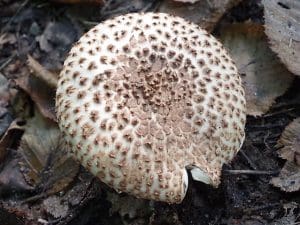
Stem:
Off white to tan in colour and dotted with brown scales. Around halfway up the stem is a skirt, the skirt is smooth and cottony but on its underside where it was attached to the cap margin, they are brown scales.
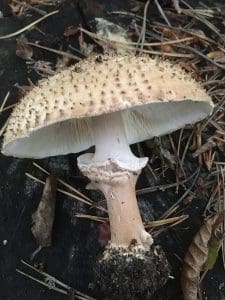
Gills:
The gills are white, very crowded and free. When the mushrooms are very young they have a veil covering the gills which breaks away to form the skirt.
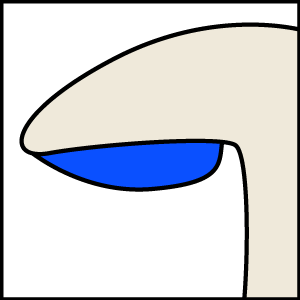
Smell:
Like rubber.
Spores:
White.
Known hazards
One to avoid their edibility is unknown, they react adversely with alcohol and the smell is off putting.
Potential lookalikes
They are quite distinctive so really only other members of the Echinoderma family, all of which should be avoided.
From a distance, they do look a bit like a Blusher (Amanita rubescens) but this has lighter coloured scales, bruises red when damaged and lacks the off-putting smell.
Extra Notes
The name Echinoderma asperum comes from the Greek ’echinos’ meaning a hedgehog or sea-urchin and ‘derma’ meaning skin, referring to the spiny cap surface. Asper is Latin for rough again in reference to the skin



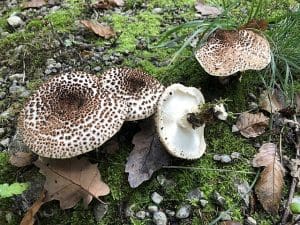
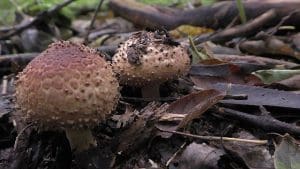
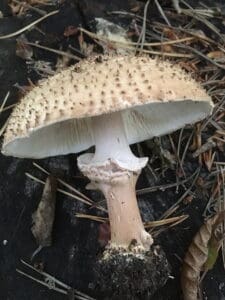



Leave a Reply
You must be logged in to post a comment.